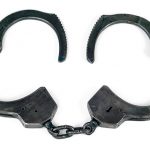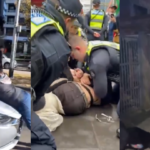Should Children Accused of Serious Crimes be Brought before Adult Courts?

A 17-year old was recently charged with fatal stabbing a man in Sydney’s west.
The victim was found in Fitzwilliam Street in Parramatta with a stab wound to his chest. He was treated by Ambulance officers but later died in Westmead Hospital.
Police arrested three teenagers in a nearby street and charged a 17-year old with murder.
A 19-year old was charged with Affray and will appear in court later this month.
A 16-year old has been released pending further inquiries.
Police are still searching the area for the weapon and appealing for witnesses to come forward.
What next?
The 17-year old appeared in Parramatta Children’s Court but, due to the nature of the charge, his matter will eventually be referred to the Supreme Court to be dealt with.
The practice of dealing with children in adult courts is a controversial one, with some of the view that kids should always be dealt with in the specialist Children’s Court while others arguing that serious crimes should come before higher courts such as the District and Supreme Court.
What does the law say?
The Children (Criminal Proceedings) Act 1987 (‘the Act’) sets out many of the rules relating to criminal and traffic law proceedings involving those under the age of 18 years in New South Wales.
Section 5 of the Act provides that no child under the age of 10 can be guilty of an offence. This is known as the age of criminal responsibility.
Section 28(1) empowers the Children’s Court to hear and determine the following matters provided the defendant was under 18 at the time of the alleged offence and under 21 when charged:
- proceedings for any offence other than a ‘serious children’s indictable offence’, and
- committal proceedings for any offence.
A serious children’s indictable offence is defined as:
- homicide,
- aggravated sexual assault under section 61J of the Crimes Act, or an attempt to commit that offence, unless the complainant was under the age of 16,
- assault with intent to have sexual intercourse under section 61K, of the Crimes Act, or an attempt to commit that offence,
- manufacturing or selling firearms under the Firearms Act 1996 where the maximum penalty is 20 years in prison,
- any offence punishable by 25 years or life in prison, and
- any other indictable offence which may be prescribed by the regulations as a serious children’s indictable offence.
These matters must be heard and determined in adult courts.
Additionally, subsection 28(2) makes clear the Children’s Court does not have jurisdiction to hear and determine a traffic offences unless:
- it arose out of the same circumstances as another offence for which the person is before the court, or
- the person was not old enough to obtain a licence or permit when the offence was alleged to have been committed.
A traffic offence is broadly defined as any contained in the:
- road transport legislation,
- Roads Act 1993,
- Motor Accidents Compensation Act 1999,
- Motor Vehicles (Third PartyInsurance) Act 1942, and
- Recreation Vehicles Act 1983.
This includes common offences such as drink driving, driving with an illicit substance present, driving whilst suspended or disqualified, negligent driving and driving recklessly, furiously, in a manner or at a speed dangerous.
Section 29 of the Act outlines the rules when a child is charged with an offence together with a person in respect of whom the Children’s Court does not have jurisdiction. In that case, the court may either:
- adjourn the proceedings against the child pending the finalisation of the co-defendant’s case, or
- continue to hear the child’s case.
In deciding which course to take, the court must consider all relevant matters including whether:
- the child wishes the case to continue,
- the child is on bail,
- continuing the proceedings is in the interests of justice, and
- the adjournment is likely to be lengthy and, if so, the likely length.
The age of criminal responsibility
The minimum age that a child can be criminally prosecuted in Australia is 10 years.
The law is a little more complicated when it comes to children aged between 10 and 14. Most Western countries, including Australia, apply the principle of doli incapax to that age bracket – which is a presumption the children are incapable of forming the intention required to commit crimes.
This, however, is a rebuttable presumption – meaning that if the prosecution is able to establish that the child understood what they were doing was ‘seriously wrong’ – along with each element of the offence in question – the child can be tried and convicted of a crime.
The offence of murder
Murder is an offence under section 18 of the Crimes Act 1900.
Which attracts a maximum penalty of life imprisonment and a standard non-parole period (SNPP) of 20 years, or 25 years where the victim is under the age of 18 or a police officer, emergency services worker, correctional officer, judicial officer, council law enforcement officer, health worker, teacher, community worker, or other public official, exercising public or community functions and the offence arose because of the victim’s occupation or voluntary work.
An SNPP is a reference point for the sentencing judge when deciding how long a person should spend behind bars before being eligible to apply for release on parole.
To be found guilty of murder, the prosecution must prove beyond reasonable doubt that the defendant killed with:
- an intention to kill; or
- an intention to inflict grievous bodily harm, being bodily harm of a really serious kind; or
- a reckless indifference to human life, meaning that the accused foresaw the probability that death would result from his or her act or failure to act.
The defence to murder in NSW include:
- self-defence, unless the killing is committed to protect property or prevent criminal trespass,
- duress, except for the person who actually committed the killing rather than another person involved in the crime,
- automatism, and
- mental illness.
There is also the partial defence of ‘provocation’ which can reduce the offence of murder down to manslaughter.
What next?
If you or a loved-one are charged with a criminal or traffic offence and would like to arrange a free conference with a lawyer that has specialist experience in matters involving children, call Sydney Criminal Lawyers® anytime on (02) 9261 8881.






